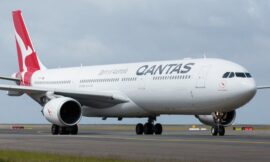The Kashmir Great Lakes Trek is one of the most breathtaking and visually rewarding treks in India. Nestled deep within the majestic Himalayas, this trek takes adventurers across seven pristine alpine lakes, each framed by rugged peaks, verdant meadows, and vibrant wildflowers. But while the dramatic vistas are often the highlight, trekkers also wonder about another important aspect: what food is provided during the trek?
Nutrition and food quality on a high-altitude trek play a vital role in maintaining energy, mood, and stamina. From morning tea to dinner and everything in between, trekking organisers ensure meals are not only nourishing but also enjoyable, considering the physical demands and harsh environmental conditions of the trail.
In this article, we’ll explore everything about the food provided on the Kashmir Great Lakes Trek, including meal planning, preparation logistics, dietary accommodations, and the daily menu breakdown. Whether you’re a first-time trekker or a seasoned mountaineer, understanding what to expect can make your journey more comfortable and satisfying.
The Importance of Nutritious Meals on a Himalayan Trek
Trekking in the Himalayas is physically demanding. The Kashmir Great Lakes Trek ranges from altitudes of 7,800 feet to over 13,000 feet. The body burns significantly more calories at these elevations, especially with constant hiking over steep ascents and descents. A typical trekker burns anywhere between 2,500 to 4,000 calories per day depending on pace, body weight, and weather conditions.
Food, therefore, becomes fuel. It must be balanced with carbohydrates, proteins, and healthy fats to keep energy levels steady. More importantly, it should be easily digestible, since the digestive system tends to slow down at higher altitudes. That’s why trekking meals are carefully designed to be light yet calorie-dense, warm, and rich in essential nutrients.
How Food is Prepared on the Kashmir Great Lakes Trek
Before diving into the actual meal plans, it’s helpful to understand the logistics of food preparation on this remote trail. The entire trek spans around 70 kilometres over 6 to 8 days, with no shops, cafes, or restaurants along the way. Everything — including groceries, gas cylinders, utensils, and water — must be carried by horses or mules.
Each trekking group is accompanied by a dedicated kitchen team, which typically includes:
- A head cook (chef)
- Kitchen helpers or sous-chefs
- Porters and horsemen to transport supplies
- Support staff to assist with food distribution
Meals are usually cooked in a central kitchen tent. Water is collected from nearby streams, boiled, and filtered before use. Cooking is done on portable gas stoves, and utensils are cleaned using stream water and biodegradable soap. Despite the tough conditions, the food quality on this trek often exceeds expectations, thanks to the skills and experience of the support crew.
Typical Day-wise Food Menu on the Trek
Let’s break down a typical food plan for each day on the Kashmir Great Lakes Trek. Meals are usually served in a dining tent or individual tents if weather conditions are bad.
Day Start: Morning Tea (6:30 AM – 7:00 AM)
The day usually begins early with a warm cup of tea delivered to your tent. Options include:
- Masala chai or black tea
- Herbal tea or lemon honey tea (especially useful for altitude sickness)
- Warm water with ginger or tulsi leaves
This helps kickstart metabolism and prepare the body for the cold morning hikes.
Breakfast (7:30 AM – 8:30 AM)
Breakfasts are filling and carbohydrate-rich to give energy for long walks. Examples include:
- Aloo paratha with pickle and curd
- Poha (flattened rice) with peanuts and vegetables
- Upma (semolina dish) with chutney
- Bread with butter, jam, and peanut butter
- Boiled eggs or omelets (for non-vegetarians)
- Cornflakes or muesli with warm milk
Fresh fruits like apples or bananas are also provided when available.
Trail Snacks / Packed Lunch (12:00 PM – 1:00 PM)
Depending on the day’s route, lunch is either served hot at a lunch stop or packed beforehand to be eaten on the trail. Packed lunch typically includes:
- Vegetable or egg sandwiches
- Chapatis or Theplas with sabzi (vegetable curry)
- Boiled potatoes with salt and masala
- Fruits, dry fruits, or trail mix
- Energy bars or chikki (peanut brittle)
- Juice tetra packs or Electral pouches
Trekking guides often remind participants to stay hydrated and sip water regularly.
Evening Tea & Snacks (4:00 PM – 5:00 PM)
After reaching the next campsite and some rest, hot beverages and snacks are served to re-energise the body and uplift the mood.
- Ginger tea, masala chai, or coffee
- Popcorn, pakoras (fritters), or maggi noodles
- Biscuits or sattu (roasted gram flour) drinks
- Roasted peanuts or bhel puri
The warmth of these snacks is particularly comforting after a cold and tiring trek.
Dinner (7:30 PM – 8:30 PM)
Dinner is the most elaborate and hearty meal of the day, served warm and fresh in the dining tent. A typical dinner includes:
- Rice or jeera rice
- Dal (lentils) — varieties include moong dal, masoor dal, or dal tadka
- Roti or chapati with ghee
- Mixed vegetables, paneer curry, or chana masala
- A small portion of sweet dish like kheer, halwa, or suji sheera on certain days
- Warm soup (e.g., tomato soup or vegetable clear soup)
Dinner often ends with herbal tea or warm water to aid digestion.
Special Dietary Requirements
Trekking organizers are increasingly accommodating dietary restrictions. You can inform them in advance if you have any of the following:
- Vegetarian / Vegan
- Jain food (no onion/garlic)
- Gluten-free
- Lactose-intolerant
- Nut allergies
However, while vegetarian food is easily managed, more specific needs (like vegan or gluten-free) require coordination and advance notice. Trekkers are advised to carry supplementary food like energy bars, soy milk, or protein powders, just in case.
What Kind of Food Is Not Available?
Given the remoteness of the Kashmir Great Lakes Trek, some items are simply not feasible to carry or prepare:
- Fresh meat (chicken or mutton): due to lack of refrigeration, meat is not served except possibly canned items.
- Alcoholic beverages: Prohibited during the trek due to altitude effects.
- Baked goods: No ovens mean no cakes or pastries.
- Refrigerated desserts or dairy-heavy sweets
Trekkers are advised not to expect luxury meals, but rather wholesome, balanced food that suits the environment.
Hygiene and Food Safety
The kitchen staff follows strict hygiene practices:
- Freshly washed utensils
- Use of boiled water for cooking and drinking
- Covered food storage to avoid insects or contamination
- Cooking with gloves and aprons
Many groups also carry water filters or tablets to purify stream water. Trekkers are advised to carry their own reusable water bottles, thermos flasks, and some dry snacks for personal use.
Carry Your Own Essentials
While food is well taken care of, there are certain items you may want to carry for added convenience:
- Energy bars or protein snacks
- ORS/Electrolyte powder for hydration
- Instant noodles, soups, or coffee sachets
- Personal cup/spoon/bowl (some treks don’t provide disposables)
- Small spice mixes or condiments if you like extra flavor
Having your favourite munchies handy can be a morale booster, especially on tiring days or during bad weather.
Food and the Trekking Experience
Sharing meals in the dining tent is a beautiful part of the trekking experience. It’s a time when strangers become friends, stories are shared, and everyone gathers to warm up after a cold day. The simplicity of the food, the effort taken to prepare it in such an environment, and the community spirit that comes with it make every bite special.
The Kashmir Great Lakes Trek isn’t just a visual treat — it’s a complete sensory experience. The smell of hot parathas at sunrise, the crunch of trail mix at a lakeside break, the steam from evening soup inside a flapping tent — all these little details enrich the journey.
Final Thoughts
Food is not just a necessity on the Kashmir Great Lakes Trek — it’s a core part of the experience. Well-planned trekking meals offer comfort, nutrition, and warmth, fueling both the body and spirit as you traverse one of the most enchanting trails in India.
Whether you’re a seasoned trekker or embarking on your first Himalayan journey, rest assured that the meals provided will support your adventure every step of the way. And while the lakes, valleys, and snow-draped peaks will stay etched in memory, so too will the simple joy of sipping chai at 12,000 feet.



